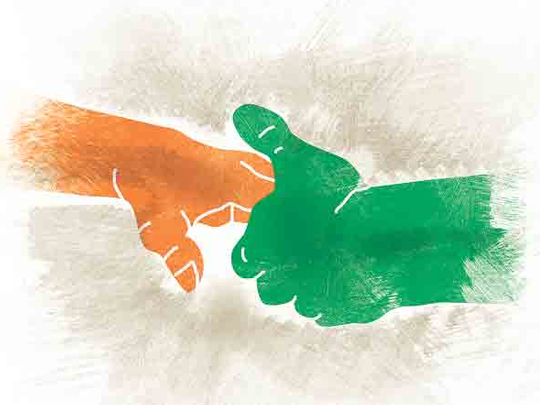
Jammu and Kashmir has been popping up in the news quite regularly lately. And it's not been good news. A spate of violence in recent times threatens to throw the whole region into an unmanageable quandary of chaos. More than 55 civilians have lost their lives, and confidence in the Chief Minister Omar Abdullah appears to be plummeting. The fate of this state mimics a ping pong game between politicians.
Indian Prime Minister Manmohan Singh pledged last week that the issue of autonomy would be considered once peace and calm is restored. "If there is consensus among political parties on autonomy for the state, then it can be considered within the ambit of the Constitution," Singh had said during a meeting of representatives of different political parties from Jammu and Kashmir in New Delhi.
The Opposition Bharatiya Janata Party (BJP) was quick to pounce on the prime minister's remarks on autonomy.
BJP leader Venkaiah Naidu stated, "Whatever is possible within the Constitution of India without compromising the sovereignty of India and without compromising on Kashmir being a part of India, BJP is open to discussion on any other issue."
The party spokesperson Ravi Shankar Prasad added, "We are not in favour of giving independence to Kashmir under the garb of autonomy. We are against disintegration of Kashmir from India. Do you think autonomy is a step in the right direction?"
Old wounds
Sometime back, speaking before a Georgetown University audience, Dr Gulam Nabi Fai, the executive director of the Kashmiri American Council stated: "October 27th, 1948, is forever scarred in the collective minds of the Kashmiri people as the day they became occupied."
Historically, the Kashmir dispute is a fallout of the partition of India. The Muslim-majority parts of British India became Pakistan, and the Hindu-majority regions became the Dominion of India. There were, at that time, some 575 princely states in India under indirect British rule.
Lord Mountbatten gave them the choice of joining either India or Pakistan, and instructed that their choice must be guided by the religious composition of their populace as well as by the borders they might share with either India or Pakistan.
On October 26, 1947, the Hindu ruler of Kashmir said his Muslim-majority kingdom would accede to India and not join the newly created Islamic Pakistan. Kashmir has since been claimed by both India and Pakistan, and roiled with violence, involving Indian and Pakistani troops and Kashmiri separatists. So far some 90,000 have been killed in the uprising.
Resolution of conflict
India itself took the issue of Kashmir to the Untied Nations, which passed some 18 resolutions on Kashmir, recognising the status of the state as disputed and calling for a resolution of the conflict based on the will of the people of the state, which the first Indian prime minister, Jawaharlal Nehru, himself also publicly promised.
Voices in India in recent years have been calling for the same. A Hindustan Times survey discovered that 87 per cent of the Kashmiris want azadi (freedom). Swaminathan Aiyar of The Times of India wrote in one of his columns, "We promised Kashmiris a plebiscite six decades ago. Let us hold one now".
And Vir Sanghvi of the Hindustan Times stated, "So, here's my question: why are we still hanging on to Kashmir if the Kashmiris don't want to have anything to do with us?"
So what do the people of Kashmir want? Kashmiris demand the right of self-determination as guaranteed to them under the United Nations Security Council resolutions.
Both India and Pakistan have much to gain if there is peace, stability and economic cooperation in South Asia. Economic interests and other internal and external forces are pushing both countries towards a common goal and that is to have peace and economic cooperation in South Asia.
But the unsettled situation in Kashmir remains a constant fuse to the flurry of un-neighbourly actions between the two countries.
Whether the Kashmiris choose to align themselves with Pakistan, maintain the status quo or form an independent state should be best left for them to decide.
- Tariq A. Al Maeena is a Saudi socio-political commentator. He lives in Jeddah, Saudi Arabia.









